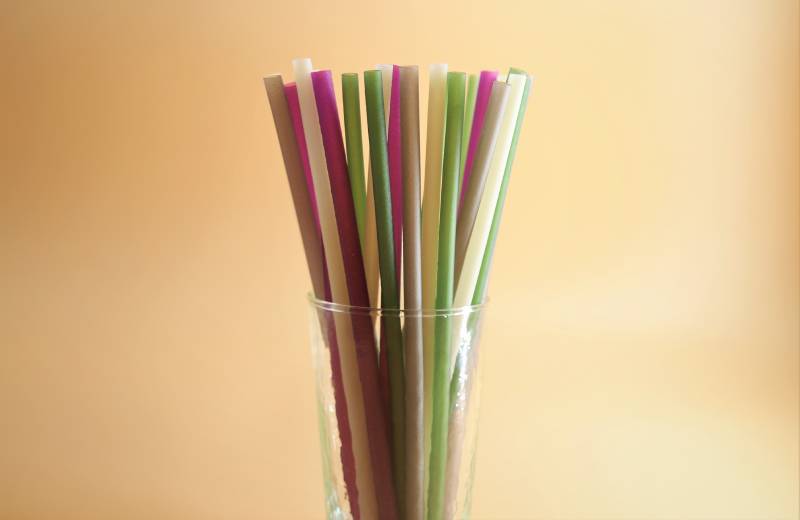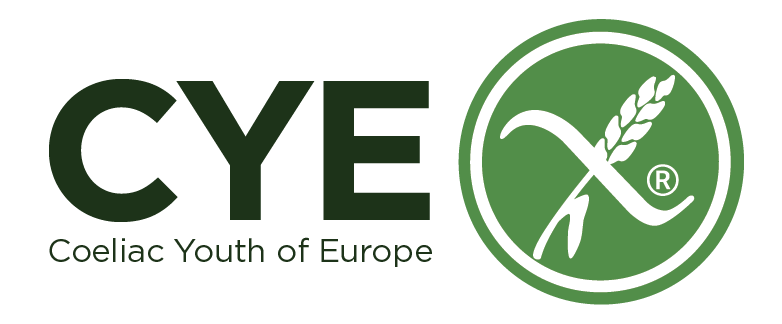
We see it quite often: biodegradable tableware (cutlery, plates, straws…) made of wheat or other cereals. It is great that there are more alternatives to plastic, we are all worried about taking care of the planet, but how safe are these for people on a gluten free diet?
What happens when you eat a gluten free dish from a plate made of wheat bran? And what happens if you also use a fork, knife and spoon from the same material? Or if you drink a smoothie through an edible straw? Does this contaminate your food or drink with gluten? Since the use of these products is more common every day and the festival season is coming up, we decided to do some research and answer all your questions.
To do so, we have combined studies done by Coeliac UK, FACE (Spain) and the NCV (the Netherlands) and asked AOECS about their position statement regarding this topic with the SAL (Scientific Advisory List).
What was researched
The main question we have is if gluten free products are contaminated after they come into contact with biodegradable products.
The results
It is important to notice that the tests show that gluten free food is affected by the non-gluten free tableware.
Most biodegradable products have a significant effect on gluten free products, resulting in the gluten free products no longer being gluten free. Depending on the kind of product and the temperature of the product, the level of contamination differs. These coeliac associations did their experiments in different laboratories using the methods recognized by the codex to determine the amount of gluten content in food (ELISA R5) and in some cases also used other methods to compare (G12).
Results of the experiments with biodegradable tableware:
Laboratory 1: Nutrilab – r-biopharm – Method: ELISA Sándwich R5
| GF Product | Biodegradable tableware | Gluten |
| Soup | Edible bowl of wheat bran from Sligro (>8.000 ppm) | 93ppm |
| Milk | Edible straws of Superhalm, made of wheat bran, apple pulp and sugar | 15ppm |
| Sandwich | Wheat bran plate, knife and fork of Biotrem (>40.000 ppm) | 24ppm |
Laboratory 2: AQUIMISA – Method: ELISA Sándwich R5
| GF Product | Biodegradable tableware | Gluten |
| Rice | Plate | 12ppm |
| Rice – micro | Plate | ND <3ppm |
| Vegetable cream | Plate | >80ppm |
| Vegetable cream – micro | Plate | >80ppm |
| Hot Milk | Plate | >80ppm |
| Cold Milk – pipetted | Straw | ND <3ppm |
| Hot Milk – pipetted | Straw | ND <3ppm |
Laboratory 3: University of Seville – Methods: ELISA R5 and G12
| GlutenTox ELISA A1 – G12 | ELISA Sándwich R5 | |
| Rice | <10ppm | <10ppm |
| Rice – micro | <1,56ppm | <5ppm |
| Vegetable cream | <10ppm | <10ppm |
| Vegetable cream – micro | 10-20ppm | 10-20ppm |
| Hot Milk | 10-20ppm | 10-20ppm |
| Cold Milk – pipetted with straw | <1,56ppm | <5ppm |
| Hot Milk – pipetted with straw | <1,56ppm | <5ppm |
Our advice: Do not use
The test results show that gluten from biodegradable tableware contaminates food and drinks. It is therefore safer not to use these products.
Are you visiting a festival or other event and you think biodegradable tableware is used? Bring your own. That way it is safer for you to order something that is gluten free. But you still need to ensure there is no cross contamination at these places, which is not always easy. If you have the option to bring your own food with you, make sure you have a back-up plan.
Regarding the use of disposable tableware, we give the same advice. Keep in mind that not only plates, forks and spoons are made of gluten containing cereals, but there are also pasta straws, which will also contaminate your drink, so just ask for your drink without a straw.
Disclaimer
These tests were spot checks and don’t have the same value as certification of a product. These results may not guarantee the same results for a different package. It only gives an indication.
